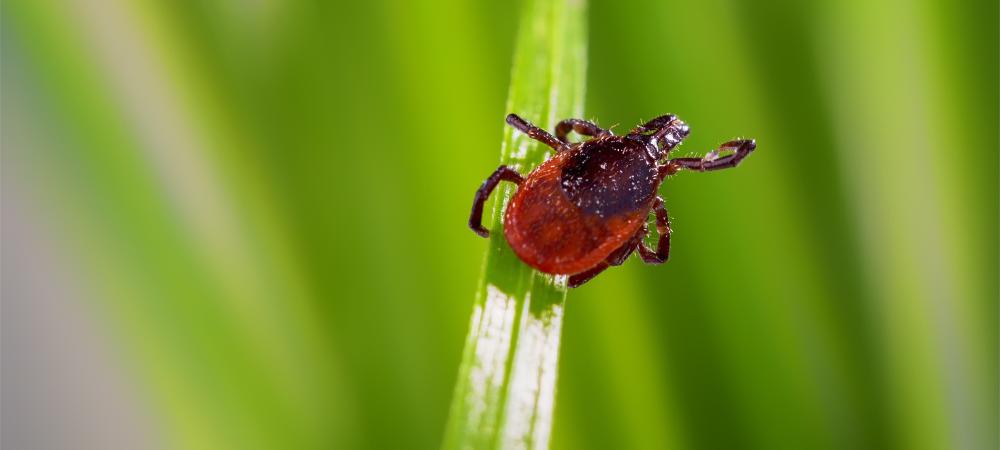Tick Prevention in Morristown, NJ

Ticks can be a significant problem for anyone living in Morristown. These tiny pests are more than an annoyance; they can cause serious health issues if left unchecked. But with the correct information and precautions, you can keep ticks from invading your Morristown home or business. So grab your bug spray, and let's get started! This article will cover identifying ticks when active in New Jersey, the diseases they transmit, and how to prevent them.
How to Identify Ticks
Ticks are small, round creatures ranging from 3-5 millimeters. Depending on the species, they may have a black and white or brown body with eight legs. Nymph ticks, which are younger, can be as small as poppy seeds making them challenging to detect. When inspecting your home for ticks, look closely at areas like furniture and carpets and cracks in walls or floors.
When Are Ticks Active in New Jersey?
Ticks are active throughout the year in New Jersey, but their activity peaks during the summer months of May through July. During this time, ticks will be most commonly found in wooded or brush-filled areas such as meadows and thick forests. They can also find their way to residential areas with close-trimmed grass and garden plants.
The warmer summer weather means that people spend more time outdoors, which increases the chances of encountering a tick. It's important to know where ticks are likely to be found and take precautions such as wearing light-colored clothing with long sleeves and pants tucked into socks or boots. Additionally, whenever you have been outdoors, checking for ticks on your body or clothes is wise. Taking these steps can help keep you safe from potential harm caused by ticks.
What Problems Do Ticks Cause in and Around My Morristown Home or Business?
Ticks can prove to be a significant nuisance if they are found on your Morristown property. Not only do ticks pose a serious health risk, but they can also cause structural damage to your home or business. Ticks feed on the blood of any warm-blooded animals, including humans. They use their powerful mouthparts to latch onto their host and feast on its blood until they become engorged. During this process, they can leave behind bite wounds that may become infected if not treated properly. In addition, ticks can cause damage to furniture and carpets in homes by leaving behind droppings that stain the fabric.
To protect yourself and your property from tick-related problems, it is important to contact an experienced pest control specialist right away. An exterminator will be able to assess the severity of your tick infestation and provide you with the best solution for eliminating them from your Morristown property.
Diseases Transmitted by Ticks in New Jersey
Ticks are a common pest in Morristown and can carry and transmit serious diseases. Lyme disease is the most well-known and prevalent of these illnesses, but several others can be contracted from tick bites. These include Rocky Mountain spotted fever, ehrlichiosis, babesiosis, anaplasmosis, tularemia, and Powassan virus. All these illnesses can cause various symptoms, ranging from mild to severe. For example, some may present with fever and fatigue, while others could lead to long-term neurological or organ damage if left untreated.
It is vital to take precautions against ticks in Morristown. This includes wearing protective clothing when outdoors and avoiding wooded areas where ticks are known to congregate. Additionally, performing regular tick checks on yourself and your pets after being outside can help identify ticks before they have had a chance to bite.
How To Remove A Tick
If you find a tick on your body or pet, removing it promptly and carefully is paramount. To do so:
- Use fine-tipped tweezers to grasp the tick as close to the skin surface as possible.
- Pull steadily outward until the tick releases its grip.
- Avoid squeezing or crushing the tick's body, which could cause more saliva and pathogens to be released into the bite area.
- Once the tick has been removed, wash the bite area with soap and water and contact your healthcare provider if you develop any signs or symptoms of illness.
How to Prevent Ticks in New Jersey
Preventing ticks in New Jersey is an integral part of staying healthy. The best way to avoid tick-borne illnesses in the Garden State is to be aware of your surroundings and take the necessary precautions outdoors. Wearing light-colored clothing that covers your arms, legs, and neck will help make it easier to spot any ticks that may have attached themselves. Additionally, using insect repellents containing DEET can help repel ticks from attaching themselves in the first place. When returning home, it is also a good idea to thoroughly check for ticks on yourself and your pets.
Taking preventive measures against ticks now can help ensure you don't have to worry about them later! Finally, you can reduce the risk of coming into contact with ticks by making sure your lawn is free of tall grass or piles of leaves where they could be hiding. If necessary, contact a pest control expert who can advise on landscaping adjustments to make your yard less inviting to these pests.
Tick Control in Morristown by Delsea Termite & Pest Control
For those looking for professional tick control services in Morristown, Delsea Termite & Pest Control is the best choice. Their experienced pest technicians use cutting-edge technologies and industry-leading products to eliminate ticks from residential and commercial properties. Please don't wait; contact us today!
